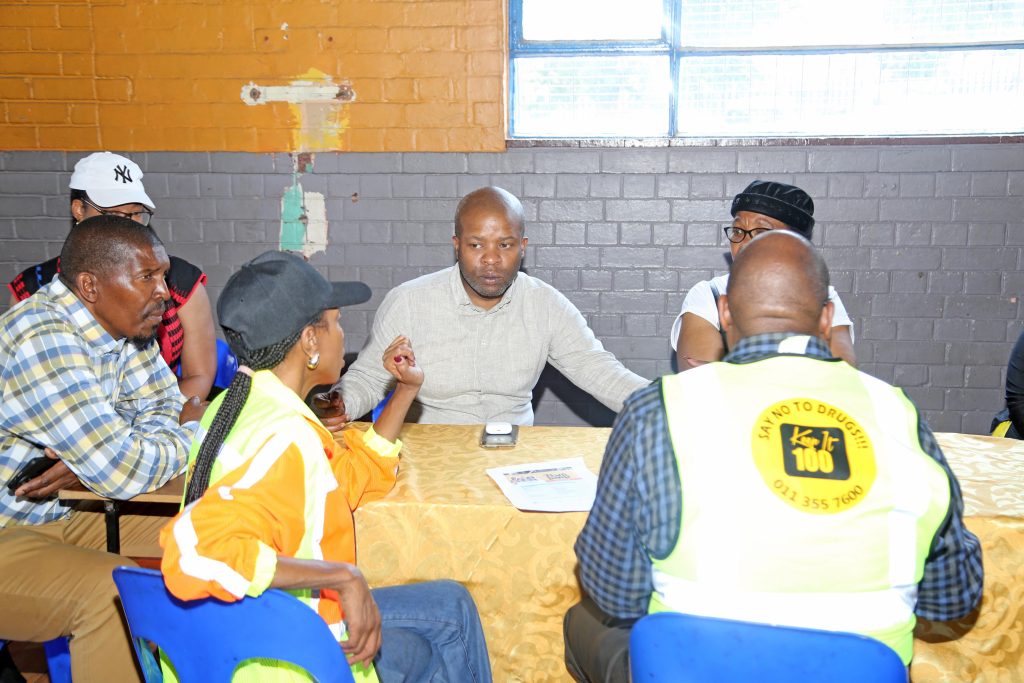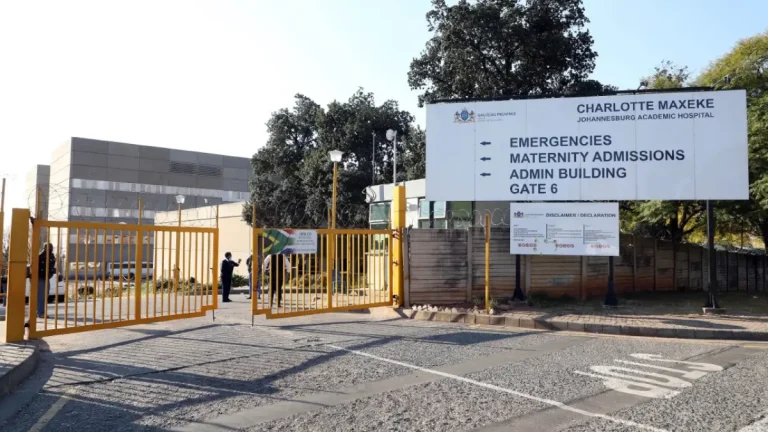The fight against substance abuse gained momentum in Gauteng this week. MEC for Finance and Economic Development Lebogang Maile met with residents, health workers, and activists at Orlando Community Hall. The gathering formed part of the Tswa Daar: Phuma Lapho Anti-Substance Abuse Campaign, a provincewide initiative to curb the impact of drugs and alcohol.
Thank you for reading this post, don't forget to subscribe!Led by the Gauteng Provincial Government, the campaign promotes prevention, rehabilitation, and social reintegration. It ensures that help reaches people in the communities most affected by addiction.
ALSO READ: Panyaza Lesufi Leads Gauteng’s Tswa Daar Drive to End Substance Abuse
Taking the Fight to the People
Inside Orlando Community Hall, the atmosphere was charged with purpose. Volunteers in “Say No to Drugs” vests sat beside social workers and youth leaders. They shared stories of rising crime, family breakdowns, and the growing number of young people trapped in addiction.
The Orlando activation is one of several taking place across Gauteng. Premier Panyaza Lesufi and Members of the Executive Council are leading events in Johannesburg, Tshwane, Ekurhuleni, Sedibeng, and the West Rand.
Lebogang Maile said Tswa Daar is about taking government directly to the people. Through these pop-up centers, residents can access treatment, counseling, and documentation support without having to travel far.
On-Site Services and Immediate Support
Each Tswa Daar site hosts a multidisciplinary team that includes doctors, nurses, social workers, police officers, and youth officers. Their mission is to offer quick, coordinated support.
At the Orlando site, residents could access:
• Health and medical screening for substance-related issues
• Assistance with affidavits for rehabilitation admissions
• Help with identity document applications
• Profiling for jobs and training opportunities
• Registration for rehabilitation and outpatient programs
• Enrolment in skills development courses for long-term reintegration
These services form part of the Anti-Substance Abuse Response Program, designed to make recovery accessible and people-focused.

Beyond Rehabilitation: Restoring Opportunity
MEC Maile reminded residents that recovery cannot happen without opportunity. He noted that unemployment and lack of direction often push young people back into substance use. By linking rehabilitation to job readiness and training, Tswa Daar gives recovering users a real path to rebuilding their lives.
Participants shared that missing identity documents and limited job access make reintegration difficult. The involvement of Home Affairs and Labor Department officials at the event allowed many of these barriers to be resolved on-site. It showed how coordinated government work can produce immediate results.
Community Partnerships and Shared Responsibility
Tswa Daar relies on collaboration between government, churches, schools, NGOs, and local businesses. In Orlando, faith-based groups, women’s associations, and youth clubs worked side by side with government teams to identify affected households and offer help.
The campaign’s slogan, “Bring your son or daughter, your friend, brother or sister,” captures its people-centered approach. Addiction is not treated as a crime but as a social issue that needs compassion, structure, and support.
The aim is to transform vulnerable areas into safe, understanding communities where recovery is visible and achievable.
A Province United
Under Premier Lesufi’s leadership, Tswa Daar has reached every corner of Gauteng. The main launch at Mehlareng Stadium in Thembisa brought together MECs Faith Mazibuko, Tasneem Motara, Jacob Mamabolo, Matome Chiloane, Kedibone Diale-Tlabela, and Lebogang Maile. Each is leading the program in a specific region to ensure that no area, from Sharpeville to Soshanguve, is left behind.
This collective approach shows a government that understands the scale of the crisis and is working together to change it.
Why Tswa Daar Matters
Substance abuse continues to harm Gauteng communities, especially the youth. It drives crime, unemployment, and social instability. Many families face both economic and emotional strain as a result.
Tswa Daar’s model places recovery within the community. By removing stigma and adding opportunity, it gives people a reason to hope again. The initiative also supports Gauteng’s GGT2030 Development Strategy, which connects health programs to employment, youth empowerment, and safer neighborhoods.
Maile’s Message to the Community
MEC Maile urged residents to take ownership of the campaign. He encouraged parents, teachers, and leaders to talk openly about substance abuse and refer those in need to Tswa Daar centers.
He said real change happens when communities unite, protect their youth, and take a stand against drugs. His message reflected the heart of the campaign, restoring families, dignity, and purpose.
A Healthier, Safer Future
Tswa Daar represents a new model for social recovery. It combines medical support, education, and skills training to give people a second chance at life.
Residents can visit Tswa Daar sites between 09h00 and 14h00 at venues such as Orlando Community Hall, Giant Stadium in Soshanguve, Mehlareng Stadium in Thembisa, and George Thabe Stadium in Sharpeville.
The Department of Social Development has also set up a provincial database to track substance abuse patterns and allocate resources fairly.
Step Out, Stand Up and Support Change
Tswa Daar is more than a government project. It is a call for unity and action. Every resident can make a difference by volunteering, spreading awareness, or helping someone find treatment.
Breaking the cycle of addiction takes compassion, courage, and persistence. Gauteng has taken the first step. Now, communities must keep it going.
Need help or want to get involved?
Toll-Free Helpline: 0800 22 88 27
Email: [email protected]
USSD: 13447472# (zero-rated)
Together, Gauteng can build a province where recovery is real, families heal, and everyone has a chance at a life free from addiction.




